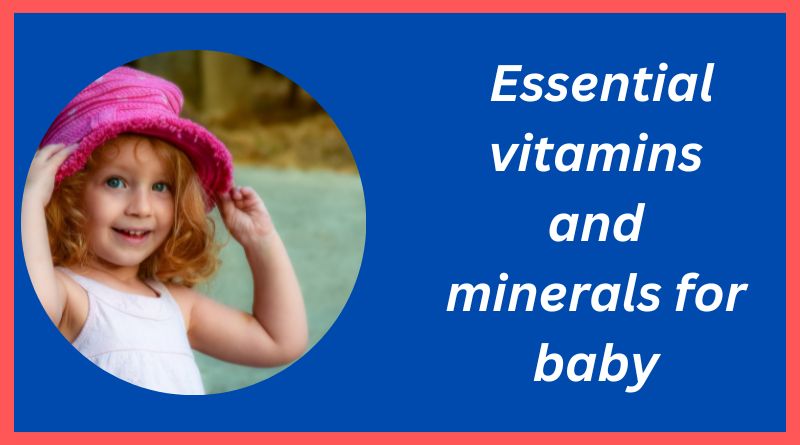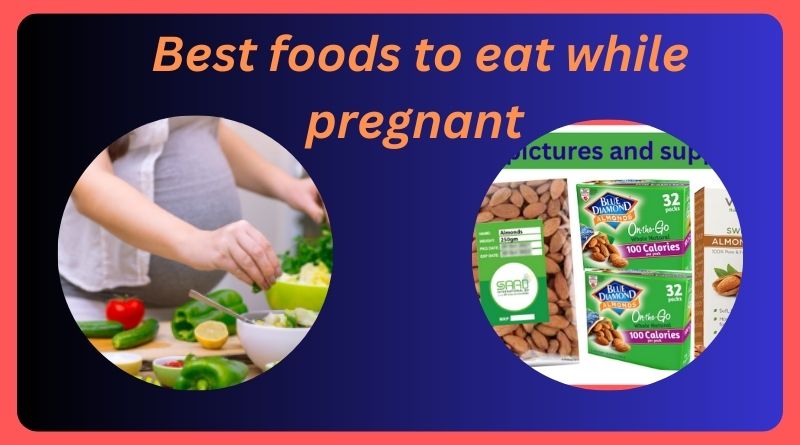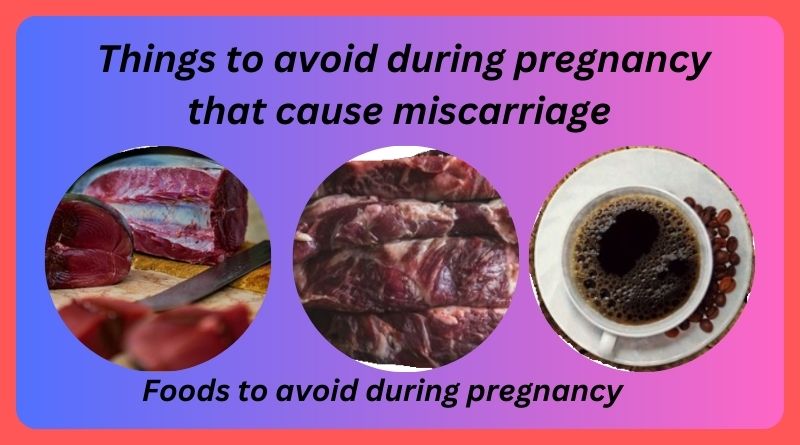The importance of nutrition before pregnancy:
During the best prenatal vitamins over-the-counter preconception visit, prenatal care is addressed as a strategy to avoid problems in a future pregnancy, and one of the most important aspects analyzed is nutrition. The nutritional status of a woman at the beginning of pregnancy is fundamental and essential to planning both the optimal weight gain and the food or nutrient supplementation that will be required during the gestational period.
Most healthy women with a normal diet before pregnancy tend to face pregnancy with sufficient energy and nutrient reserves to achieve normal fetal growth and development.
However, it is also true that during pregnancy the woman’s need for vitamins, iron, calcium, iodine, and Omega-3 increases significantly. On many occasions, we will be able to cover this demand directly with food, while on others the gynecologist may recommend the intake of supplements.
On the other hand, controlling the diet before pregnancy is decisive in preventing Neural Tube Defects (NTDs), a group of malformations present from birth (including spina bifida or anencephaly, that is, the absence of a brain or skull) and which may be due to different factors, including a lack of nutrients such as folic acid.
For this reason, women who wish to become pregnant are recommended to take folic acid ( Vitamin B9 ) and Vitamin D, since both are essential for a safer pregnancy.
What are the best prenatal vitamins?
It is a multivitamin indicated for pregnant women or for those who are trying to conceive or are breastfeeding. Prenatal vitamins are formulated based on nutrients needed during or before pregnancy. Of note, some observational studies have shown that prenatal vitamin supplementation reduces the risk of preterm birth and preeclampsia.
The latter term refers to a potentially dangerous complication characterized by high blood pressure and protein in the urine. So these types of supplements can help prevent nutritional gaps by providing additional micronutrients that are in high demand during pregnancy.
If you finally choose to take prenatal vitamins, or your doctor advises you to, it will not be necessary to resort to other additional vitamin or mineral supplements. These multivitamins may be enough to cover your nutritional needs during this period.
Is supplementation safe?
Getting the right nutrients is important at every stage of life, but it’s especially critical during pregnancy as you’ll need to nourish yourself and your growing baby.
Therefore, pregnancy significantly increases the intake needs of macronutrients (carbohydrates, proteins, and fats). On the other hand, the requirement for micronutrients (vitamins, minerals, and trace elements) tends to increase to a greater extent than that of macronutrients. Some people can meet this growing demand through a well-planned, nutrient-dense eating plan, but it can be a challenge for others.
Finding the right supplement becomes a challenge that will be easier to overcome if you consult your doctor. Regarding possible nutrient deficiencies during pregnancy, some women may need a supplement after a blood test reveals low levels of a certain vitamin or mineral.
Correcting deficiencies is critical, as shortages of vitamins like folate have been linked to starting defects. In this sense, women who eat little or choose foods low in nutrients may need vitamin and mineral supplements to avoid deficiencies. Gynecologists generally recommend that all pregnant women take a prenatal vitamin and folic acid supplement.
It is indicated to fill nutritional gaps and prevent developmental abnormalities at birth, such as spina bifida. In another order of things, food supplements made from herbal and plant extracts can help with some ailments that tend to worsen at this stage.
Still, while many herbal supplements are safe during pregnancy, others may not be, so it’s important to consult a health professional first.
This occurs because while some herbs help reduce common pregnancy ailments (nausea and discomfort), others can be harmful to both the baby and the mother herself.
The best vitamins for pregnancy
So, let’s cite some of the best vitamins in pregnancy, focusing on the following:
vitamins A, B9, or folic acid and D, as well as minerals such as calcium, iodine, and iron. Always taking into account that personal needs may be different in many cases, let’s see the vitamins listed simply as a guide.
Vitamin A is essential in the synthesis of growth hormone, but a good diet can largely cover the needs of this vitamin. By intervening in cell division and multiplication, vitamin B9, or folic acid, for its part, as we have pointed out, is important at the time of conception, as well as after.
During pregnancy, the recommended amount is 400 micrograms and its deficiency can cause a congenital neurological malformation known as spina bifida. Vitamin D is synthesized with sun exposure and the recommendation in pregnancy is 10 micrograms daily and has a key role in creating calcium reserves.
Specifically, promoting the passage of calcium from the intestine into the blood and its bone fixation, while limiting its ending up in the urine. In general, the diet and sun exposure of a few minutes a day are enough to meet the needs of this vitamin.
As for iron, -whose absorption is greater with vitamin C-, it is responsible for the synthesis of red blood cells, a key aspect to build the baby’s blood mass, in addition to preventing the mother from suffering from anemia.
Likewise, the fetus accumulates iron reserves that it will use until the first months of its life. The daily dose during pregnancy is usually doubled, with 30 mg daily, always under medical prescription.
Best prenatal vitamins and minerals
The best multivitamins for women should contain a variety of vitamins and minerals essential for female health.
Some of the vitamins and minerals to look for in women’s multivitamins include:
*Folic Acid – Important for reproductive and fetal health during pregnancy.
*Calcium and vitamin D: essential for bone health and the prevention of osteoporosis.
*Vitamin B12: necessary for the formation of red blood cells and to maintain the function of the nervous system.
*Vitamin C – Helps support a healthy immune system and may improve iron absorption.
*Iron: helps prevent anemia and fatigue, especially in women with heavy periods.
*Vitamin E – An antioxidant that helps protect cells in the body from damage.
It is important to note that each woman’s vitamin and mineral needs may vary depending on her age, lifestyle, and state of health.
That is why it is advisable to speak with a doctor or nutritionist to determine individual needs and choose a suitable multivitamin.
What are multiple micronutrient preparations?
They are preparations that contain all or most of the nutrients that I have mentioned before.
The most important are folic acid, iron, iodine, calcium, phosphorus, DHA and EPA fatty acids (omega 3), and vitamin B12.
They also contain small amounts of zinc, selenium, copper, and vitamins E, D, C, K, B1, B2, B5, and B6, which will also help you during this period.
Keep in mind that sometimes it is not necessary to take supplements since it may be that your levels are adequate.
Therefore, the doctor is the one who can best advise you.
What are the benefits of taking multivitamins for women?
Taking a multivitamin can have several health benefits for women. Some of the potential benefits include:
*Providing essential nutrients – A multivitamin can help fill nutritional gaps in a woman’s diet and provide essential vitamins and minerals for health.
*Improve bone health – Multivitamins containing calcium and vitamin D can help prevent osteoporosis and improve bone health in women of all ages.
*Support Heart Health – Some studies suggest that multivitamins may help reduce the risk of heart disease in women.
*Boost the immune system – Certain vitamins and minerals, such as vitamin C and zinc, can help support a healthy immune system and protect against disease.
*Reduce the risk of birth defects – A multivitamin that contains folic acid can reduce the risk of neural tube defects by 50-70% in developing babies.
Best prenatal vitamins
What are the most common vitamins and minerals prescribed in pregnancy?
Folic acid: Folic acid is a type of vitamin B (B9) important for pregnancy.
Reduces the risk of so-called neural tube defects, and brain and spinal cord malformations (spina bifida and anencephaly); it also reduces the risk of other birth defects, such as cleft lips and certain heart defects. It is an essential nutrient for the formation of DNA and proteins in the fetus.
It is found in green leafy vegetables, bread, whole grains, and some nuts, and it is possible to find products such as bread, breakfast cereals, or juices enriched with folic acid. Also in legumes such as chickpeas, beans, lentils, or broad beans, it is better not to overdo these legumes as they can increase flatulence.
However, the body absorbs the synthetic version better than food, so it is recommended that all pregnant women take a daily vitamin supplement containing the recommended amount.
If you are planning to get pregnant, I recommend that you supplement the diet with folic acid a couple of months before pregnancy. The intake must be daily and uninterrupted because it is not stored in the body and if it is not taken properly it loses effectiveness.
Iron forms hemoglobin, which is responsible for transporting oxygen throughout the body. During pregnancy, you need an extra amount of iron, approximately double, since, from the beginning of pregnancy, your blood volume increases, and with it the need for iron to supply oxygen to you and your baby.
In this way, the baby receives enough oxygen to grow healthy. If your iron intake is not enough, you can develop anemia. Red meat and liver, hen and charcuterie, egg yolk, legumes, nuts (figs, plums, apricots, and almonds), cocoa, total wheat bread, sardines, sprouts, brewer’s yeast, beets, broccoli, and inexperienced leafy vegetables.
Iron is more easily absorbed if these foods are taken with other foods rich in vitamin C, such as citrus fruits or tomatoes.
Calcium:
It promotes bone health and is needed for the baby to form all of its bones, teeth, and also nerves, and muscles (including the heart). Milk and dairy, such as cheese or yogurt, are the best sources of calcium in your diet, but if you are lactose intolerant, you can get calcium from fortified oats or almond milk, tofu, sesame seeds, broccoli, Brussels sprouts, cabbage, sweet potatoes, legumes, leafy greens, sardines, or almonds, as well as specific supplements.
Vitamin D:
Vitamin D works together with calcium to help the development of the baby’s bones and teeth.
In addition, together with adequate levels of calcium and phosphorus, it allows the baby to have healthy skin and good visual capacity.
Milk fortified with vitamin D and oily fish, such as salmon, are good sources of this vitamin; on the other hand, exposure to the sun also activates the production of vitamin D, so it is convenient to take it for about twenty minutes a day.
The need for this vitamin does not increase during pregnancy or lactation, so in normal pregnancy with an adequate diet, it would not be necessary to use supplements.
Iodine:
Iodine is important for the proper development of the baby’s brain and nervous system. The main natural sources of iodine in the diet are iodized salt, shellfish in general, fish, eggs, and algae, but it is difficult to acquire the necessary level during pregnancy through food alone. For this reason, an iodine-containing prenatal vitamin supplement is recommended from the moment you think you are pregnant until you finish breastfeeding.
Foods rich in iodine:
Swiss chard, spinach, cod, anchovies, strawberries, hazelnuts, eggs, carrots, and whole cow’s milk.
DHA Omega 3 fatty acids:
Omega 3 DHA fatty acids are essential for the development of the central nervous system, the growth of the brain, and the eye tissue of the baby, both before and after birth.
It is found in fatty fish such as salmon, trout, herring, anchovies, and sardines. You must be very careful since large fish (tuna, swordfish, sea bass…) contain high levels of mercury, which is especially dangerous for the fetus.
It will not be a problem if the weekly fish rations are reasonable (3 or 4 times), alternating large predatory fish with small oily fish. Omega 3 DHA fatty acids are also found in chicken, eggs, flaxseed oil, walnuts, oily fish, pumpkin seeds, and hemp seeds.
B12 vitamin:
It is necessary for the formation of red blood cells, DNA, and RNA (genetic material), prevents megaloblastic anemia, helps calcium absorption, and is involved, among other things, in the normal functioning of the nervous system. It is advisable to take it together with iodine in preconception, pregnancy, and lactation.
Vitamin B12 deficiency can increase the risk of spina bifida and recurrent miscarriages.
Found in: meat and fish, dairy products, some seaweeds, and fortified foods such as breakfast cereals.
Read more: anemia while pregnant types symptoms cause treatment
Benefits of DHA and EPA in Pregnancy
As we have explained previously, docosahexaenoic acid (DHA) is a type of fat that positively intervenes in growth and development. It is especially recommended during pregnancy since DHA is essential to help develop the baby’s brain and eyes.
Before resorting to supplementation, you can opt for a varied and balanced diet that includes fish such as herring, salmon, trout, or anchovies. Likewise, some products can incorporate added DHA, such as orange juice and fortified milk.
Remember to read the label well and consult a health professional in case of doubt. It should be noted that fish oil contains docosahexaenoic acid (DHA) and eicosapentaenoic acid (EPA).
These two essential fatty acids are important for the development of the baby’s brain. It is a combination that could even help in reducing maternal depression.
Several observational studies have shown improved cognitive function in the offspring of women who took fish oil-rich supplements during pregnancy.
Therefore, to obtain DHA and EPA through food, it is recommended to consume two to three servings of low-mercury fish such as salmon, sardines, \or pollock per week. Another alternative is to trust a professional laboratory that specializes in products based on fatty acids from natural sources.
Read more: No breast milk after delivery what to do
FAQ of the best prenatal vitamins over the counter
When should I start the healthy diet or, if necessary, take these supplements?
Ideally, the mother-to-be prepares for the pregnancy several months in advance, giving up alcohol and tobacco, following a balanced and varied diet, and taking folic acid supplements from the moment she begins to seek pregnancy, maintaining them at least until the end of the first trimester.
The current trend is to take them during the 9 months. But if the pregnancy has come by surprise, don’t worry. The analyses and follow-ups with your doctor will tell you if you should cover any deficit.
Probiotics for pregnant women?
Given the increased general awareness of gut health, many parents-to-be are turning to probiotic supplements. These are usually composed of live microorganisms that benefit digestive health.
Many studies have shown that probiotics are safe during pregnancy and no harmful side effects have been identified. The risk of infection induced by this type of product is extremely low.
Additionally, several studies have shown that probiotic supplementation may reduce the risk of gestational diabetes, postpartum depression, and infantile dermatitis. You should know that research on the use of probiotics in pregnancy is ongoing.
Read more: What are the exclusive benefits of breastfeeding
Are they contraindicated in any case?
In principle, vitamins or supplements during pregnancy are not contraindicated, but the abuse of vitamins and minerals can cause disorders and, therefore, the guidelines indicated by your doctor should not be abused or exceeded.
In the event of any doubt or sensitivity to any mineral or ingredient of the product in question, it is always advisable to consult us at the pharmacy or directly with your gynecologist.
Should the same supplements be taken in the first, second, and third trimesters?
Yes, during the entire period of pregnancy, the same supplements are usually taken unless the mother needs a greater vitamin supplement due to a deficiency seen in the analysis.
The only thing to keep in mind is that before pregnancy it is recommended to take folic acid and iron, two essential components in the first weeks of pregnancy.
Read more: Tips for a healthy pregnancy and safe delivery
What supplements should I take if I am a vegetarian or vegan?
Iron: this supplement is not as easily absorbed from foods other than red meat.
Vitamin B12: it is almost exclusively found in products of animal origin, so vegans should be very careful and supplement their diet with this vitamin.
YouTube


